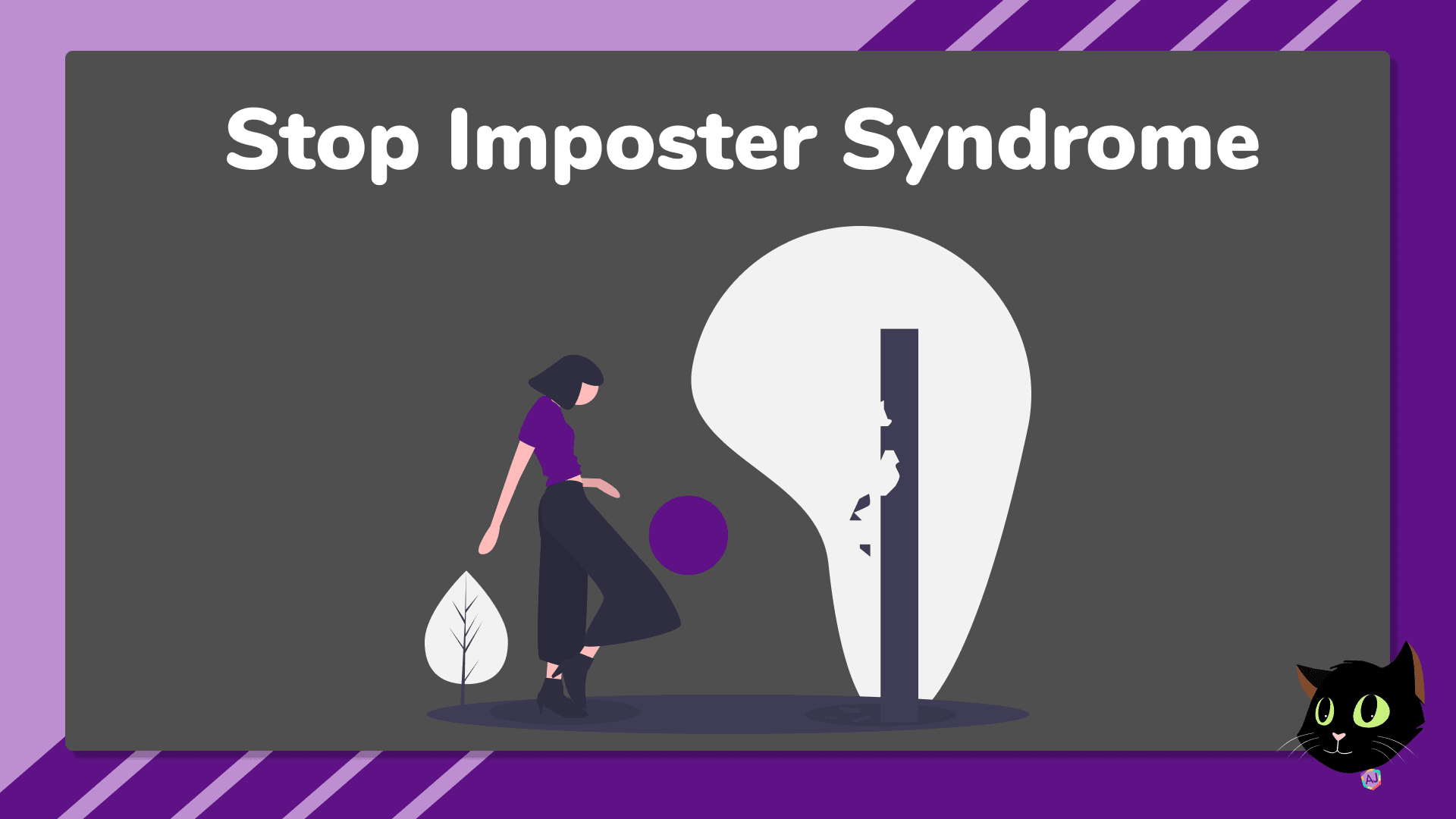
The 7 Strategies I Used To Defeat Imposter Syndrome
Imposter Syndrome is a term that was coined in 1978. It means someone who is insecure about their skills and accomplishments, worried that they are not qualified enough to succeed. This feeling of self-doubt can affect anyone at any time. But what's so interesting is how it disproportionately affects women, minorities, and people who are the first to do something in their field.
Original: codingcat.dev/post/the-7-strategies-i-used-..
Imposter Syndrome is a term that was coined in 1978. It means someone who is insecure about their skills and accomplishments, worried that they are not qualified enough to succeed.
This feeling of self-doubt can affect anyone at any time. But what's so interesting is how it disproportionately affects women, minorities, and people who are the first to do something in their field.
Since Imposter Syndrome can affect so many people, it's important to know how to deal with this problem if you're feeling it yourself or if you're trying to help someone else who's dealing with it.
The 7 Strategies I Used To Defeat Imposter Syndrome:
Know that the feelings are real
Accept your feelings
Learn from those feelings
Push Yourself
Fake it until you make it
You can’t know everything (that’s what Google is for)
Reward yourself
Know that the Feelings are Real
Often you will find you tell yourself a story. You will be sitting in an interview with such high expectations of yourself that you start to completely loose confidence. Or you won’t even want to start an interview because you have already told yourself you are not good enough. These are feelings that everyone has from time to time.
Accept Your Feelings that You Get From Imposter Syndrome
The following is an excerpt from a blog post by Michelle Zarrillo.
"I don’t know when I started to feel confident in my writing, but I always felt like something was off. Like maybe I didn’t deserve it or maybe I would get found out."
This is an example of how Imposter Syndrome can affect your feelings on your own ability.
It is not uncommon for people to feel this way. One study revealed that more than 70% of students have had this feeling while they are pursuing their studies in college or university. This can be caused by the pressure of getting high grades, wanting to impress others, the desire to be the best at what you do, and more.
The key here is to accept that this will happen and learn how to push through this mindset.
Learn From Feeling Like an Imposter
There will be moments in your life when you will feel like an idiot. This happens to everyone at some point in their life, but it doesn’t necessarily mean that you are an idiot.
The key here is to know the difference. If you are applying for a frontend development job and someone starts asking you about Rust, most likely it is okay to feel this way. Just be very open and say something like “I don’t know Rust, isn’t that a backend language”.
A sense of belonging fosters confidence. When people feel connected to their community, they are more likely to be confident in themselves and their abilities. Join groups like codingcat.dev and ask what you should prepare for in an interview.
Push Yourself
Regularly challenge yourself to do something that scares you.
To feel alive, we must consistently challenge ourselves to do things that scare us. These challenges can be mental, physical or emotional. Experiencing fear is a sign of progress and shows that you are actively living life to the fullest. Life is an adventure and it is our responsibility to make sure we are doing all we can to make it a good one.
For instance – You might not know Rust, but if you really want to get good at it start practicing. You will struggle and it will be painful, but that is okay this is how we learn and grow.
Fake It Until You Make It
Sometimes there are no shortcuts to becoming more confident in your role, but if you fake it at first, and see and hear yourself doing well, eventually that will turn into actual confidence.
Listen I am a complete introvert at heart. For me, there are times when I go into full meltdown mode when we started doing the podcast. I would get in my head like, “people hate me, why would they listen to this mumbling dude”.
I just started doing it and as I kept doing it those self-talk items that I talked about above and mentioned again here about the podcast, they start to melt away. It is still true there are people that don’t like my style and this is okay!
You can’t know everything (that’s what Google is for)
This topic focuses on the fact that there is no need for us to know everything. Every time we think of something, we can find an answer to our question online. If we don't find the answer online, there's always Google and get close and then build knowledge around it.
We cannot know everything and that is not a bad thing because it leaves some space for us to learn and explore new things.
We should not be judged by what we do not know, but instead by what we do know and how we go about learning new things.
The biggest piece of advice I try to give junior devs is: “It is okay to say I don’t know”. Sure you can fake it until you make it but if you are in an interview be general, but if it gets specific it is totally fine.
Reward Yourself
Do you have a reward system for yourself after completing a difficult task, finishing a work assignment, or achieving some other objective? If so, what are your rewards?
If you only Push Yourself, you will eventually burn out and then you will get back into the self-talk cycle. Take time to accept your successes! Go to that movie you have been wanting to see. Read that book that everyone is talking about. Run a 5k.
Just make sure it is something that isn’t going to make you feel bad about yourself!
